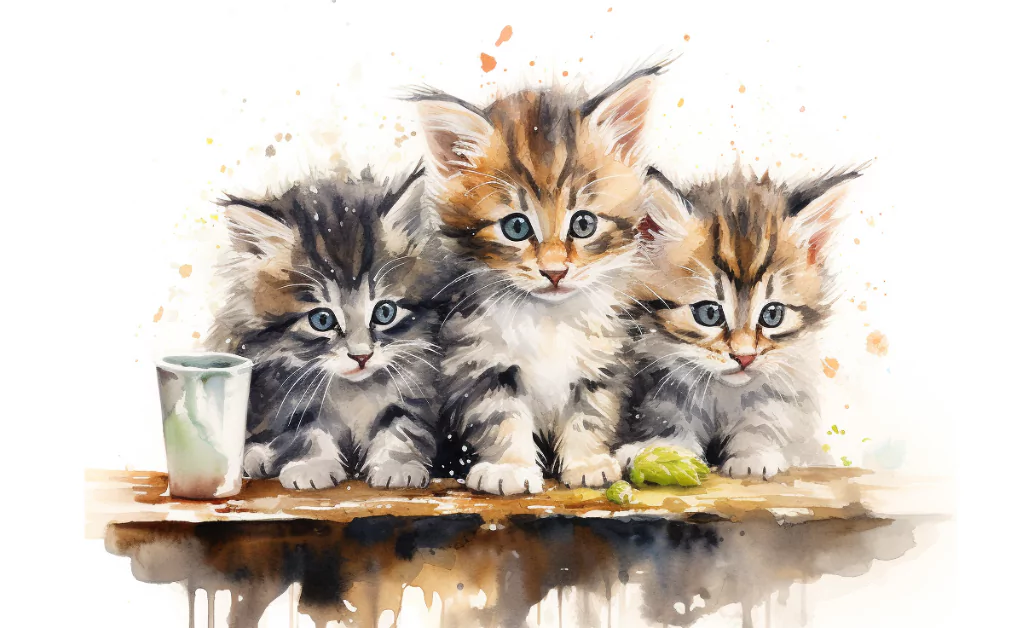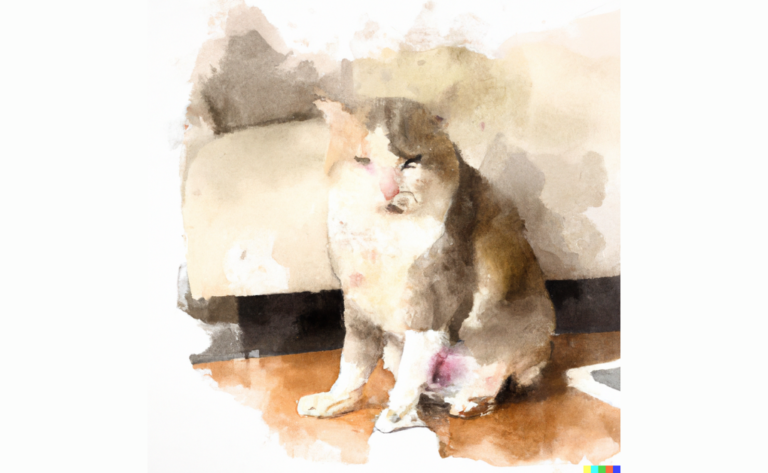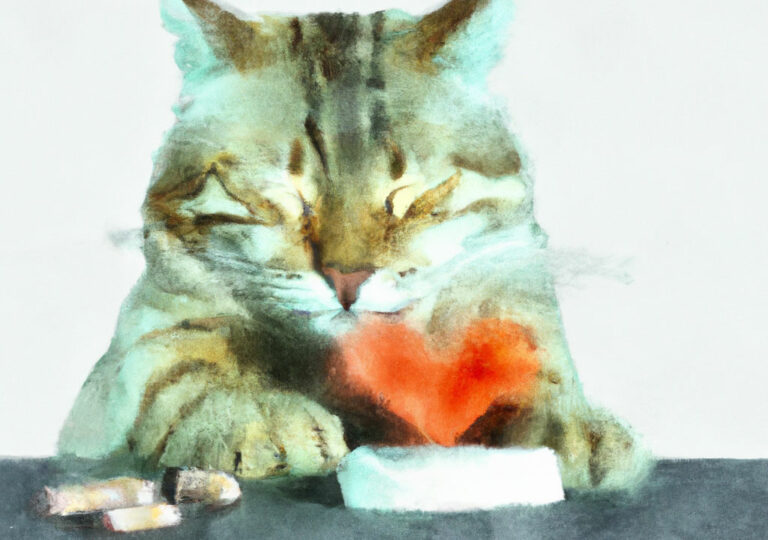How To Care For A Newborn Kitten
Introduction
When Maria unexpectedly found herself taking care of a tiny, newborn kitten, she quickly realized that her life was about to change. With her heart full of love and her mind racing with questions, she embarked on a journey to learn how to properly care for her new furry family member.
Nurturing a newborn kitten can be a deeply fulfilling journey, albeit with a substantial commitment, demanding time, a thorough understanding, and abundant affection. In the initial few weeks, newborn kittens rely entirely on their caregiver for survival, necessitating assistance with everything from feeding to temperature regulation, even stimulating them for bathroom needs. This comprehensive guide on caring for a newborn kitten, covering everything from feeding, maintaining warmth to socialization, and health checks, provides a week-by-week blueprint for preventive care during these early, critical weeks.
Whether you embark on the journey of kitten care for the first time or are a seasoned pet parent, these insights will serve as your guide to raising underage kittens. Throughout the first four weeks and beyond, your dedication, coupled with the right knowledge and consistent help from your veterinarian, will ensure the transformation of your newborn kitten into a healthy, joyous, and spirited young feline.
What to Consider When Caring for Newborn Kittens
Providing comprehensive care to neonatal kittens demands a multifaceted approach, including numerous health and wellness facets. Here are the primary aspects to contemplate:
Feeding
Neonatal kittens must be bottle-fed with a kitten milk replacement formula every two to three hours. Kittens generally sleep 90% of the time, with the remaining 10% devoted to eating. Notably, these young kittens cannot process cow’s milk, so they never substitute it. Use a kitten feeding bottle fitted with a small nipple, replicating the mother’s teat. Daily, kittens should consume about 8 milliliters of formula per ounce of body weight. Monitoring the kitten’s weight and adjusting feeding amounts accordingly is essential.
Temperature Control
Newborn kittens cannot regulate their body temperature during the first three to four weeks of life, so maintaining an appropriate ambient temperature is vital. The environment should be around 85-90 degrees Fahrenheit for the first week, gradually reducing to about 80 degrees by the fourth week. A heating pad or hot water bottle wrapped in a towel can serve as a heat source but also ensure a cooler zone in the kitten’s enclosure to allow them to retreat from the heat if necessary.
Hygiene and Elimination
Kittens under three weeks old require help to urinate and defecate. This assistance, termed ‘stimulation,’ typically involves gently massaging the lower belly and genital area with a warm, moist cloth or cotton ball after every feeding, mirroring the mother cat’s natural grooming. Maintain the kittens’ cleanliness and dryness to prevent skin irritations.
Socialization
When they open their eyes, newborn kittens learn about their environment. Regular, gentle interaction helps them adapt to human contact, a crucial component of their social development. Introduce them to diverse, harmless stimuli like varying sounds, textures, and gentle handling by different individuals to equip them for various environments as they mature. However, balance this with their rest and sleep requirements, both vital for growth and development.
Health Checks
Consistent health checks serve as a routine preventive care measure, allowing you to keep track of the kitten’s development and identify any potential health complications early. Make it a habit to weigh the kittens daily; a stable weight gain indicates a kitten’s health. Regularly examine their body for signs of bloating, injuries, or discomfort. Watch their eating, sleeping, and waste elimination patterns. See immediate veterinary attention if you spot any irregularities or signs of illness like lethargy, continuous crying, trouble breathing, or diarrhea. Experienced vets can provide the necessary emergency care.
Vaccinations and Deworming
Administering vaccinations and deworming form integral components of a kitten’s healthcare regimen, akin to routine preventive care in human health. The first round of vaccinations should commence around six to eight weeks old, with subsequent booster shots administered per your vet’s advice. Deworming can begin when kittens are approximately two to three weeks old, as they can inherit worms from their mother. Always consult your vet for an accurate schedule and the appropriate vaccines and dewormers to ensure optimal cat health, preventing issues like heartworm.
Preparing for Adoption
If you’re preparing the kittens for a new home, begin this process around eight weeks old. This preparation involves slowly transitioning them from bottle feeding to wet and then dry food, catering to their cat nutrition needs. Familiarize them with the concept of a litter box to instill proper sanitary habits. Introduce them to various people, noises, and handling experiences to foster adaptable cat behavior.
Remember that caring for young kittens, particularly unattended or newborn kittens without a mother, requires a significant commitment and can be demanding. Despite the challenges, with the support of organizations like Alley Cat Allies and the plethora of cat services available, the rewarding sight of their development into healthy cats is gratifying. Remember, the right care can prevent many health issues, including cat cancer, reducing the need for later procedures like cat surgery.
Feeding a Newborn Kitten
Nourishing a newborn kitten requires a unique formula and meticulous technique to secure adequate nutrition and avoid complications. Here’s a comprehensive guide to the process:
- Preparation: Begin with a kitten milk replacement formula specifically designed to meet the dietary requirements of newborn kittens for raising healthy kittens. Avoid cow’s milk or other kinds of milk, as kittens can’t digest it appropriately and lack the correct nutrients. You’ll also require a kitten feeding bottle equipped with a small nipple.
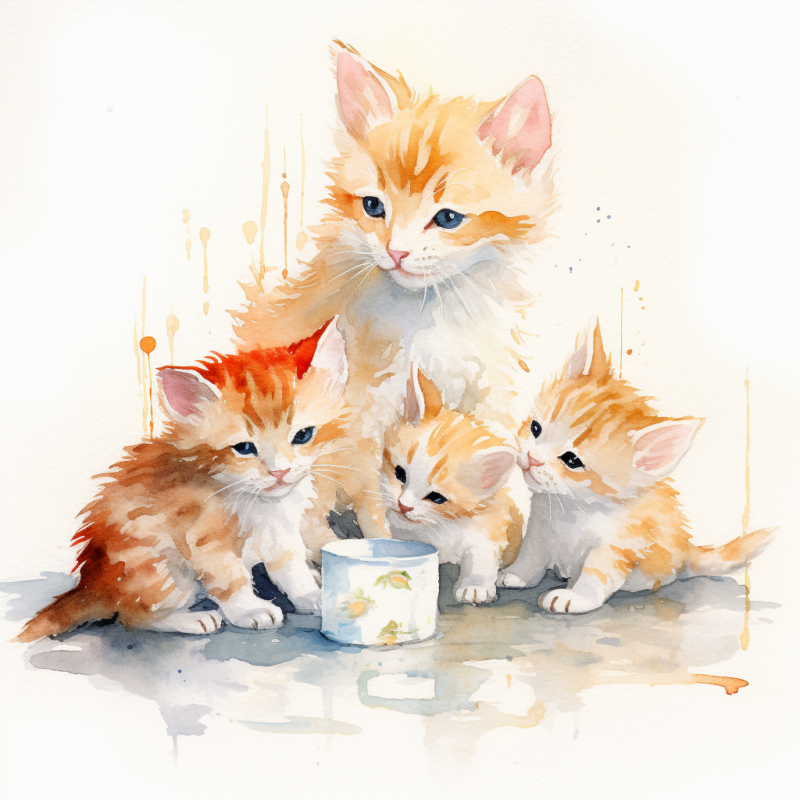
- Formulating the Mixture: Prepare the kitten milk replacement formula following the instructions on the packet. Ensure it’s at the correct temperature before presenting it to the kitten. It should be warm but not scalding. To confirm, test a few droplets on your wrist; it should feel comfortably warm.
- Positioning the Kitten: The kitten should be held upright or belly-down, mirroring their nursing position with their mother. Kittens should never be fed on their backs, as this can lead to aspiration, where the formula enters the lungs instead of the stomach.
- Feeding: Insert the bottle’s nipple into the kitten’s mouth and let them suckle. A gentle squeeze on the bottle can help stimulate milk flow, but excessive pressure could result in choking or aspiration. Let the kitten set the pace, and never coerce them to drink beyond their willingness.
- Monitoring Intake: Keep track of the quantity the kitten consumes at each meal. Newborn kittens typically consume about 8 milliliters of formula per ounce of body weight daily, split into numerous small servings. Ensure that all the kittens are eating at each feeding.
- Burping the Kitten: Post-feeding, gently burp the kitten by cradling them against your shoulder and patting its back. This action helps expel any air ingested during the meal.
- Clean-Up: Clean the kitten’s face with a warm, damp cloth after each meal. This practice keeps the kitten clean and replicates the mother’s grooming habits.
- Refrigerating Unused Formula: Always refrigerate unused formula and discard it if left out for over an hour. The chilled formula should be warmed up for the next feed.
Bear in mind the responsibility of feeding a newborn kitten is substantial, and it’s paramount to do it correctly. If you need further clarification or if the kitten is not feeding adequately, it’s advisable to seek advice from a vet or an experienced individual in cat care. Always handle the kittens gently and ensure they can move away if desired after their feeding and kitten suckling session.
Feeding Frequency
The frequency of feeding kittens significantly hinges on their age. With kittens’ growth, the number of daily feedings they necessitate decreases. Here is a broad guideline:
- Birth to 1 week: Neonatal kittens must receive nourishment every two to three hours, amounting to 12 daily feedings. Holding a newborn kitten during this process can create a bonding experience and comfort the little one.
- 1 to 2 weeks: Kittens of this age bracket continue to require feedings every two to three hours, but the frequency can reduce to about 9-10 feedings daily. To help keep them warm, ensure the kittens’ environment is suitably heated, as they can’t regulate their body temperature at this age.
- 3 to 4 weeks: Kittens within this age range should receive meals every four hours or approximately six times daily. Now is the appropriate time to introduce them to high-quality kitten food alongside the kitten formula.
- 4 to 5 weeks: Kittens should be fed around five times daily during this period. Begin weaning them onto wet kitten food to ensure a smooth transition from the formula.
- 6 to 8 weeks: Kittens can be fed thrice daily at this stage. They should be fully weaned and consume high-quality kitten food exclusively.
Remember, these are broad guidelines, and individual kittens may require more or fewer feedings. Monitor the kittens’ weight and overall health, and adjust feedings as needed. If you need clarification on the feeding schedule or have concerns about the kitten’s health, consult a veterinarian. These pet care tips and practices are integral to ensuring a healthy kitten’s growth and can be considered a crucial element of cat preventive care. Always be gentle when putting the bottle’s nipple in a kitten’s mouth during feedings, especially for unweaned kittens. Mother cats are instinctively gentle and patient, and we should be too.
Handling Techniques to Keep Kittens Healthy and Safe
Handling kittens properly is crucial not just for their safety but also for their socialization and emotional well-being. Here are some guidelines on how to handle kittens in a way that keeps them healthy and safe:

Gentle Handling
Kittens are delicate creatures with fragile bodies. Always handle kittens with a soft touch and make slow, steady movements to avoid startling them. Ensure that your handling mimics the comfort and security they would get from their mother. Any sudden, rough, or harsh treatment can cause fear, stress, or even physical injury to the kitten.
Hand Hygiene
Hand hygiene is paramount when dealing with kittens. Always wash your hands thoroughly before and after handling a kitten. Kittens, especially newborns, have not yet fully developed their immune systems, making them vulnerable to infections.
Conversely, kittens can sometimes carry diseases that can be passed to humans. Regular hand washing can prevent cross-contamination and protect both you and the kittens.
Support the Body
When picking up a kitten, gently use one hand to support the chest just behind the front legs and your other to support the hind legs and buttocks. This two-handed support mimics the natural position in which a mother cat would carry her kittens and provides comfort and security to the kitten. Never pick up a kitten by the scruff of the neck or by the limbs, as it can be harmful and scary for them.
Limited Handling Time
Newborn kittens should have minimal handling for the first few weeks, primarily for feeding, cleaning, and quick health checks. Excessive handling can cause stress and expose them to potential infections. As the kittens grow and their eyes open (around two weeks old), you can gradually increase the time you spend handling them.
Proper Socialization
From about 2 to 7 weeks of age, kittens are in a critical socialization period. This is when they learn about their environment and how to interact. Start by gently petting and stroking the kittens for a few minutes at a time, several times a day. You can gradually introduce more social interactions as they get older and more comfortable with a human touch.
Introduce New Experiences
Diversifying a kitten’s experiences helps them become well-adjusted adults. Introduce them to harmless stimuli like different sounds, textures, and people. This could include the sound of household appliances, exposure to different room temperatures and types of bedding, and gentle handling by different people. Keep these experiences positive to prevent creating fear or stress.
Respect Their Signals
Kittens communicate their feelings through their body language and vocalizations. Pay attention to signs of stress or discomfort, such as hissing, spitting, growling, or trying to escape. If a kitten exhibits these signs, give them some space and try to interact again later when they’re calm. Respecting their signals helps build trust and makes future interactions easier.
Comfortable Environment
Especially in the early weeks, handling kittens in a warm, comfortable, and quiet environment is important. Cold, loud, or chaotic surroundings can stress kittens, impacting their development and overall health. A cozy room with minimal noise and disruption is ideal.
Safe Play
Promoting safe and appropriate play is vital in raising well-adjusted kittens. Use toys that stimulate the kittens’ instinctual behaviors like stalking, pouncing, and climbing. Encourage kittens to play with these toys, not human hands or feet, which can lead to aggressive behavior. Regular play also contributes to their physical development and learning.
Remember, handling kittens should always be a nurturing and positive experience. The time and effort spent in these early weeks will pay off as your kittens grow into well-adjusted, confident, and affectionate cats.
Potty Train Your Kitten
Potty or litter training is an essential part of raising a kitten. Luckily, cats naturally tend to bury their waste, making potty training relatively straightforward. Here’s a step-by-step guide:
Choose the Right Litter Box
Choose a litter box that is easy for your kitten to get in and out of. In the early stages, a box with low sides is ideal. As your kitten grows, you can transition to a larger box with higher sides to prevent litter from being kicked out. The box should be large enough for your kitten to turn around comfortably.
Select Appropriate Litter
Cats can be picky about the type of litter they use. Generally, unscented, dust-free, clumping litter is a good choice for kittens. Avoid clumping litter for very young kittens (under three months) as they might ingest it, causing digestive issues. Instead, use non-clumping litter until they’re older.
Place the Litter Box Strategically
Place the litter box in a quiet, accessible location where your kitten won’t be disturbed. Avoid placing it near their food and water dishes or in a high-traffic area of your home. Consider placing a box on each level for easy access if you have multiple floors.
Introduce Your Kitten to the Litter Box
Once the litter box is set up, place your kitten in it so they can sniff and get a feel for it. To build a routine, do this several times, especially after meals and naps.
Positive Reinforcement
When your kitten uses the litter box successfully, praise them gently. Cats respond well to positive reinforcement, but remember to keep it subtle—loud or enthusiastic praise might startle them and create a negative association.
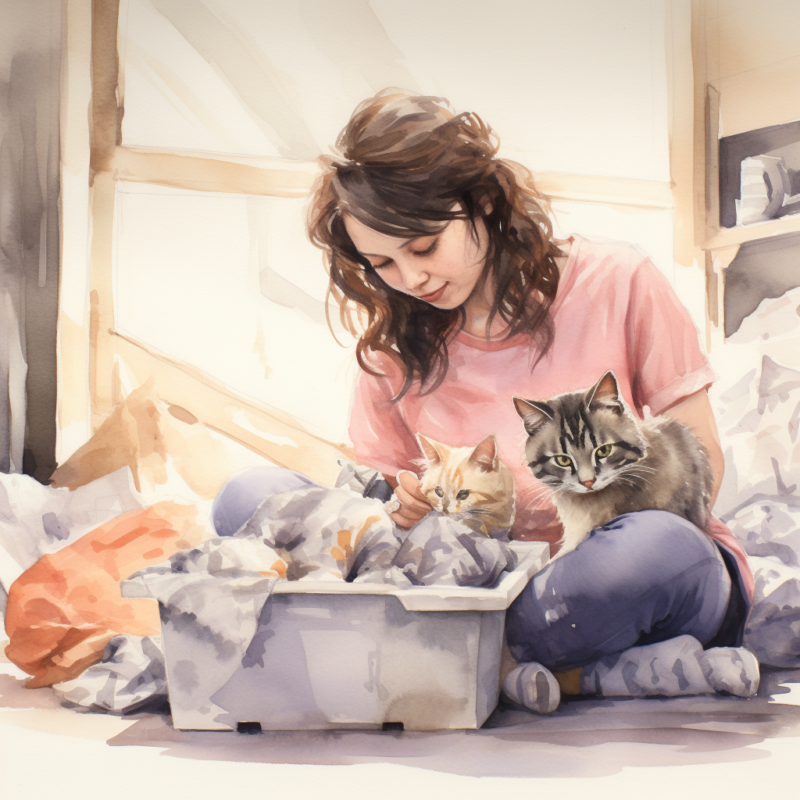
Keep It Clean
Cats are clean animals and may refuse to use a dirty litter box. Scoop the box daily and change the litter regularly, usually once a week, depending on the type of litter.
Handle Accidents Calmly
Accidents will happen while your kitten is learning. If they do, never punish them—this can create fear and anxiety, leading to more accidents. Instead, clean up thoroughly to remove any smell and gently place the kitten in the litter box.
Remember, patience is key when potty training your kitten. If your kitten consistently avoids the litter box, it could be a sign of a medical issue, and you should consult with your vet.
Spaying or Neutering
Spaying or neutering refers to the surgical procedures performed on cats to prevent them from reproducing. Spaying is for female cats and involves the removal of the ovaries and uterus, while neutering is for male cats and involves the removal of the testicles. These procedures are usually performed at around six months of age but can be safely done as early as eight to twelve weeks, provided the kitten is healthy. It’s always best to consult your veterinarian about the right time for your specific kitten.
Spaying or neutering has numerous health and behavioral benefits. Spaying prevents uterine infections and significantly reduces the risk of breast cancer in female cats. Neutered male cats are less likely to roam or engage in fights and won’t spray strong urine as intact males do. Post-surgery care is crucial for a quick recovery; your vet will provide detailed instructions. The cost of the procedure can vary, but many communities offer low-cost or free spay/neuter programs. Spaying or neutering is a key aspect of responsible pet ownership, contributing to your kitten’s long-term health and well-being.
Best Practices for Proper Kitten Hygiene
Keeping your kitten clean and practicing good hygiene is essential to their health. Here are some best practices for proper kitten hygiene:
- Regular Grooming: Cats are naturally clean animals and often groom themselves. However, brushing your kitten’s coat would be best to remove loose hairs regularly and prevent matting, especially for long-haired breeds. Brushing also helps distribute natural oils on the kitten’s skin, keeping its coat shiny and healthy.
- Bathing: Unlike dogs, cats usually don’t require regular baths. However, there may be instances where a bath is necessary, such as if your kitten gets into something messy or has a dermatological condition requiring special shampoos. Always use cat-specific shampoos and keep baths brief to reduce stress.
- Oral Hygiene: Start a routine of oral care early. Brush your kitten’s teeth regularly with cat-specific toothpaste to prevent dental disease. Regular check-ups with your vet will also help monitor your kitten’s oral health.
- Eye and Ear Cleaning: Check your kitten’s eyes and ears regularly. Any discharge should be gently cleaned away with a soft, damp cloth. Don’t insert anything into the kitten’s ear canal – if the ears look dirty, consult your vet.
- Litter Box Maintenance: A clean litter box is important for your kitten’s hygiene and encourages them to use it consistently. Scoop the box daily and change the litter regularly. The box itself should also be cleaned periodically with mild soap and water.
- Flea and Tick Prevention: Use a vet-recommended flea and tick prevention method to keep these pests at bay. Regularly check your kitten for signs of fleas or ticks, especially after they’ve been outside.
- Nail Care: Regularly check and trim your kitten’s nails. This can help prevent injuries and damage to furniture. Make sure only to trim the clear part of the nail and avoid the quick, which is sensitive.
- Regular Vet Check-ups: Regular veterinary check-ups are essential for your kitten’s health and hygiene. Your vet can provide personalized advice based on your kitten’s breed, age, and health condition.
Proper hygiene practices contribute significantly to your kitten’s health, comfort, and well-being, helping to prevent diseases and detect any potential issues early. Start these routines early to ensure your kitten grows into a healthy, happy cat.
Frequently Asked Questions
Disclaimer: The information provided on this veterinary website is intended for general educational purposes only and should not be considered as a substitute for professional veterinary advice, diagnosis, or treatment. Always consult a licensed veterinarian for any concerns or questions regarding the health and well-being of your pet. This website does not claim to cover every possible situation or provide exhaustive knowledge on the subjects presented. The owners and contributors of this website are not responsible for any harm or loss that may result from the use or misuse of the information provided herein.

